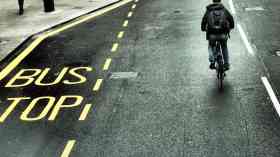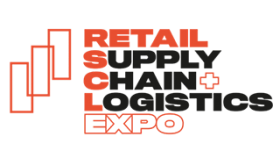Crowdguard will be exhibiting at Stand C50 at the International Security Expo 2025 from 30th September – 1st October, showcasing practical Hostile Vehicle Mitigation (HVM) solutions that protect people and places without disrupting how spaces are used.
Increased PPE price cost taxpayers £10 billion
A new report from the National Audit office has found that price rises for personal protective equipment earlier this year cost taxpayers about £10 billion.
The spending watchdog said that the government was initially reliant on stockpiles of PPE that proved inadequate for the coronavirus pandemic. In a rapidly deteriorating situation, the government made a huge effort to boost supply, but the NAO said it has paid very high prices due to unusual market conditions and many front-line workers reported shortages of PPE.
Almost £12.5 billion was spent on 32 billion items of PPE between February and July 2020. During the same period in 2019, 1.3 billion items were bought at a cost of £28.9 million. Had the government been able to pay 2019 prices, it would have spent £2.5 billion on PPE in 2020.
The NAO said that each item had been ‘substantially’ more expensive in 2020, because of very high global demand, from almost triple the cost for respirator masks to more than 14 times as much for body bags.
In addition to the increased prices, the NAO also reported that hundreds of millions was spent on ‘unsuitable’ items of PPE that could not be used, some because of expiry dates and some because they did not reach safety standards.
Gareth Davies, head of the NAO, said: “As PPE stockpiles were inadequate for the pandemic, government needed to take urgent action to boost supplies. Once it recognised the gravity of the situation it worked hard to source PPE, but most of these orders were not received in time for the first wave of the pandemic and many front-line workers reported shortages of PPE during that time. The price of PPE increased dramatically, and that alone has cost the taxpayer around £10 billion.
“There are important lessons for government to learn as it continues to tackle the pandemic. This includes fully understanding not just the requirements of the NHS, but also social care providers so that they can be better supported in future.”
Event Diary
An essential date in the calendar for those responsible for homeland and global security; International Security Expo returns to Olympia in London on 30 September & 1 October 2025.
Every sport, from grassroots football to world-class tournaments, depends on one constant: high-quality playing surfaces and well-maintained green spaces.
Tickets: Free registration available at www.retailscl.com
The Retail Supply Chain & Logistics Expo is the UK’s leading event for retail supply chain and logistics professionals, showcasing the latest innovations in fulfilment, 3PL, AI-driven automation, and warehouse technology.
Supplier Profiles
Bauder Accepts Keys to its New UK Distribution Centre at Gateway 14
Bauder marked a major milestone in its UK expansion with the official handover of a brand
Words of World: Bridging language barriers with excellence
At Words of World, we specialise in professional translation and interpreting, d
Latest Features
The British Institute of Cleaning Science (BICSc) and the Cleaning & Support Services Association (CSSA) have successfully completed a groundbreaking project aimed at exploring the future of cleaning. This collaboration marks a significant milestone in the cleaning industry, reflecting a shared commitment to embracing innovation with confidence.
The Crown Commercial Service’s (CCS) new framework on Language Services (RM6302), dealing with translation, transcription and interpreting, is live, running from 7th May 2025 to 6th May 2028.















